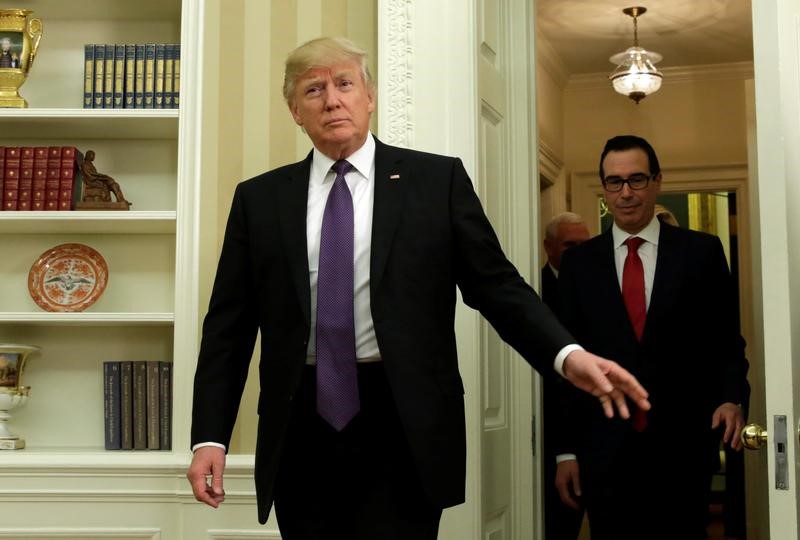WASHINGTON (Reuters) - Congressional Democrats on Tuesday tried but failed to pressure Republicans into seeking President Donald Trump's tax returns, saying the scandal over Michael Flynn made it imperative to find out whether the president has business ties to Russia.
A day after the Republican chairman of the House of Representatives Ways and Means Committee dismissed the idea, the panel's Democrats proposed an amendment demanding that the committee ask the Treasury Department for copies of Trump's returns by March 1.
"Unless this amendment is adopted, we will never see the president's tax returns while he's in office," Representative Sander Levin, a Michigan Democrat, told committee Chairman Kevin Brady at a public hearing.
"Before you stonewall this, I urge you to think twice," Levin added. "You'll only keep the issue... alive.
Brady strongly rejected the request as an abuse of the committee's authority.
Minutes later, committee rejected the amendment along party lines in a 23-15 vote.
The vote represents only the latest skirmish between Republicans and Democrats in Congress over whether lawmakers should review Trump's tax returns, which critics say would help determine whether the president's sprawling business empire poses any conflicts of interest. House Democratic aides say the political battle will continue.
The resignation of National Security Adviser Michael Flynn on Monday intensified Democratic interest in the documents, with one lawmaker warning about the potential danger of blackmail.
Representative Bill Pascrell, a New Jersey Democrat, issued the first request for Trump's returns in a Feb. 1 letter that Brady rejected on Monday.
Experts say federal law authorizes the House Ways and Means Committee, the Senate Finance Committee and the Joint Committee on Taxation to examine individual tax returns.
The two other panels are headed by Senator Orrin Hatch, a Utah Republican who dismissed the idea of seeking Trump's returns last week.
House Republicans contend that the authority to examine tax returns was meant to ensure the proper administration of the tax code.

Democrats contend that Trump's business empire involves state-owned enterprises in China and the United Arab Emirates, as well as other interests in Russia, Saudi Arabia, Turkey, Taiwan and the Philippines.